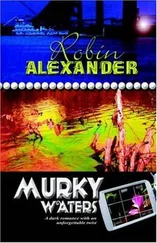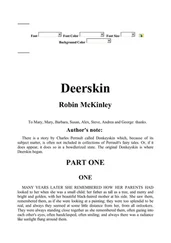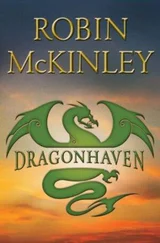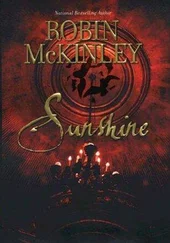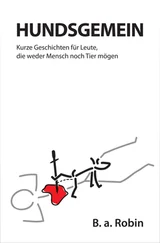Robin McKinley - Water
Здесь есть возможность читать онлайн «Robin McKinley - Water» весь текст электронной книги совершенно бесплатно (целиком полную версию без сокращений). В некоторых случаях можно слушать аудио, скачать через торрент в формате fb2 и присутствует краткое содержание. Год выпуска: 2002, ISBN: 2002, Издательство: Firebird, Жанр: Старинная литература, на английском языке. Описание произведения, (предисловие) а так же отзывы посетителей доступны на портале библиотеки ЛибКат.
- Название:Water
- Автор:
- Издательство:Firebird
- Жанр:
- Год:2002
- ISBN:9780142402443
- Рейтинг книги:4 / 5. Голосов: 1
-
Избранное:Добавить в избранное
- Отзывы:
-
Ваша оценка:
- 80
- 1
- 2
- 3
- 4
- 5
Water: краткое содержание, описание и аннотация
Предлагаем к чтению аннотацию, описание, краткое содержание или предисловие (зависит от того, что написал сам автор книги «Water»). Если вы не нашли необходимую информацию о книге — напишите в комментариях, мы постараемся отыскать её.
Water — читать онлайн бесплатно полную книгу (весь текст) целиком
Ниже представлен текст книги, разбитый по страницам. Система сохранения места последней прочитанной страницы, позволяет с удобством читать онлайн бесплатно книгу «Water», без необходимости каждый раз заново искать на чём Вы остановились. Поставьте закладку, и сможете в любой момент перейти на страницу, на которой закончили чтение.
Интервал:
Закладка:
“Yes,” they said, again simultaneously, and both smiled; and each saw how the other’s rather ordinary face lit up with gentleness and humour and intelligence.
“I wished to say thank you,” said the sea-prince, and Jenny looked at him blankly, feeling that they were still speaking simultaneously, although she had said nothing more aloud.
He smiled again at her puzzled look. “I was born after my father’s curse was laid on this harbour, and I grew up knowing that my father was weighed down by some sorrow that grew heavier each year; but I did not know what it was, for neither my father nor my mother nor any of the court would tell me. My parents would not because they would not, and their people would not because my parents forbade them, and they loved my parents enough to obey, no matter how much I teased them. But my father told me the story at last, just these few short weeks ago, with the breaking of the curse when he let you go free. . . . And I have not been able to put the thought of you out of my mind since, and so I determined to meet you if I could.
“But could I? I have been haunting this bridge lately as closely as it has been haunted in all the long years of the curse; and very lonely I have found it too. Not even the fish come into this harbour voluntarily, and my horse once tore his bridle free where I had tied him, and ran home, which he has never done; and my favourite hound will howl, however often I tell him to be still. I thought perhaps I was deluding myself, that there was no purpose in my coming here; but I could not believe this, I felt sure that you would have to come here again, you would come here at last.” He took a deep breath, and she noticed that there was a slight hissing or rattling in his breathing, but she forgot this at once because he smiled again as he looked at her. “You did come,” he said, and sounded as delighted as a boy who has just had his first pony ride.
She felt more ashamed of herself than ever. “I told myself that I wanted to thank your father for sparing me, but when I got here I thought that that was not the reason I had come at all.” She went on slowly: “I have dreamed of a land under the water, and of a people who live there, with silver-blue horses and grey-green hounds, and fish that nest in the trees. I have dreamed of this every night since I stood on this bridge, and your father set me on my horse and told me to ride home to my parents.”
He looked surprised. “That I cannot explain; I do not know of anything like that happening before. Although it is true that we have stories saying that you of your shore-bound land and us of ours were once the same people, and lived as neighbours and friends, and not merely fellow merchants, with no bonds of kindness, in the way that ended so badly for us all. And I know there are people among us who dream of the land, as you have dreamed of the sea, but I have always thought it was just a kind of longing, a wish for adventure, or an escape from something that troubles them.” But Jenny turned away at his last words, and “Forgive me,” he said at once. “My parents have long tried to school me in thinking before I speak, and say that I will be a disastrous king if I do not learn better manners. I have talked to you too much in my head, you see, these last weeks, waiting for you; I did not tell anyone about wishing to meet you. I think my father and all his people want nothing about this harbour to be part of their lives, not even a memory of its existence. And now I can’t stop talking.
“Your dreams, whatever their cause, are true ones, although there are lands in other parts of the sea where the horses and hounds are sunset-red or spotted brown and black and green, and some where people have fishes’ tails instead of legs, and speak a language we do not know.” His voice did not have the deep, fierce echo of his father’s, and although his accent was strange to Jenny’s ears, like his father’s, the son’s voice had a merriness to it, like bubbling water, and the faint rattle of his breathing only made it more like, and more charming.
He told her stories of the sea-lands he had visited till it was time for each of them to go home. “I am glad I came,” said Jenny, without thinking; and the sea-prince said at once, “Will you come again?”
“Yes,” she said, still without thinking.
“Tomorrow?” he said, hopefully.
She had to think then, if only to consider if she could escape for another afternoon; and she thought she could, and she thought not at all about her motivations. “Yes,” she said.
This time she meant to watch him, but when the wave rose up over the bridge, the light from the setting sun upon the shining sleek water blinded her, and she shut her eyes; and when she opened them again, he was gone, and there was only a little pool on the bridge to show that anything had happened. If there had been anyone there to wonder, it would have seemed very strange, for there was no wind to whip a wave up over the bridge’s side like that, and leave a pool on its broken surface.
It was not till she was riding home that she remembered that she did not know his name.
And she rode back to the bridge the next afternoon at the same time, and by now she was aware that she was not thinking about her motivations, but she only noted this and continued not to think. And there was someone on the bridge already, waiting for her, and he no longer looked at all like his father the king, but only like himself. He stood up at her approach, and walked off the bridge to meet her, and all the thoughts she was not thinking briefly overwhelmed her, and she stayed in her saddle a moment longer, fearing to climb down out of the safety of her own world and into a strange one. But he put his hand on her stirrup and his other hand to her mare’s bridle, and Flora dropped her nose and let him do it, which was not her habit with strangers, even the ordinary, dry, flat-skinned, clothed sort. And so Jenny stepped down and faced him, and he smiled the smile that lit up his ordinary face with gentleness and humour and intelligence.
“What is your name?” she said.
“Dreiad,” he replied.
They met many afternoons after that, and her parents only noticed that she seemed to be growing rosy with health again, and were willing to let her mysterious absences go unquestioned. And perhaps his parents felt similarly willing to let their son pursue whatever it was that so manifestly made him happy.
Dreiad told Jenny more stories of the lands under the sea, and she told him about her parents’ farm, and what she could of the lands beyond them, for she had travelled little. She had only been to the city where her relatives lived once—it was a two-day journey from the farm—when she was still quite small, and her chief memories were of how tall the strange eerie creatures with black iron claws for feet, which her parents told her were lampposts, looked to her, taller than trees, with the great glowing, flickering globes set on their summits; and how enormous the kerbstones were she had to step up and down on from the road. There were no kerbs on country lanes.
At first she had supposed that since Dreiad could breathe air as she did, he was as free of the land as she was and only chose to live in the water, and was shy about telling him the things she knew, when he could see for himself and draw his own conclusions. But he told her it was not so. “I cannot go even so far from the sea as visit your farm myself,” he said. “I cannot let the land-air dry my skin or I will die.” And, several times during the course of any one of their afternoon conversations, he did wade back into the water and splash himself all over.
It had occurred to them both that being thrown up on the bridge by a wave was a little spectacular for everyday use, especially if they wished to keep their meetings a secret. The harbour itself was avoided by everyone, but there were many people going about their business not so far from all view of it that Jenny and Dreiad could be sure no one would notice anything worth investigating. Jenny felt that small dazzling daily rainbows on the haunted bridge might well arouse curiosity. So now they met on the sea-shore, some distance from the bridge, and usefully around a curve at the mouth of the harbour where in three generations of disuse a young wood had grown up. Behind it there was a small meadow where Jenny tethered Flora, and Gruoch tried out various trees for sleeping in the shade of.
Читать дальшеИнтервал:
Закладка:
Похожие книги на «Water»
Представляем Вашему вниманию похожие книги на «Water» списком для выбора. Мы отобрали схожую по названию и смыслу литературу в надежде предоставить читателям больше вариантов отыскать новые, интересные, ещё непрочитанные произведения.
Обсуждение, отзывы о книге «Water» и просто собственные мнения читателей. Оставьте ваши комментарии, напишите, что Вы думаете о произведении, его смысле или главных героях. Укажите что конкретно понравилось, а что нет, и почему Вы так считаете.

